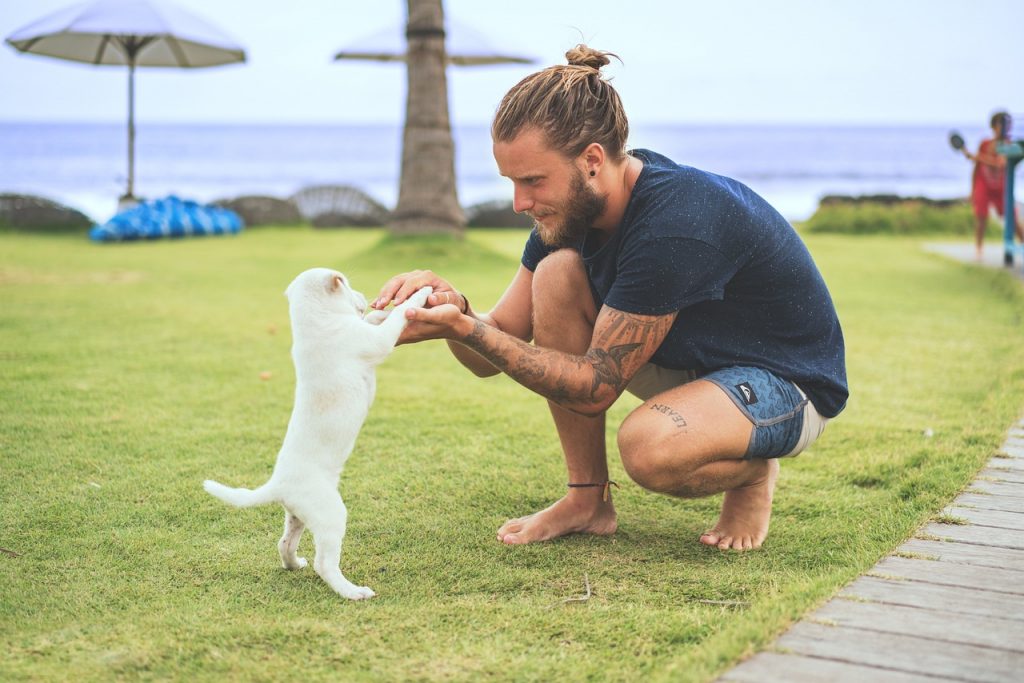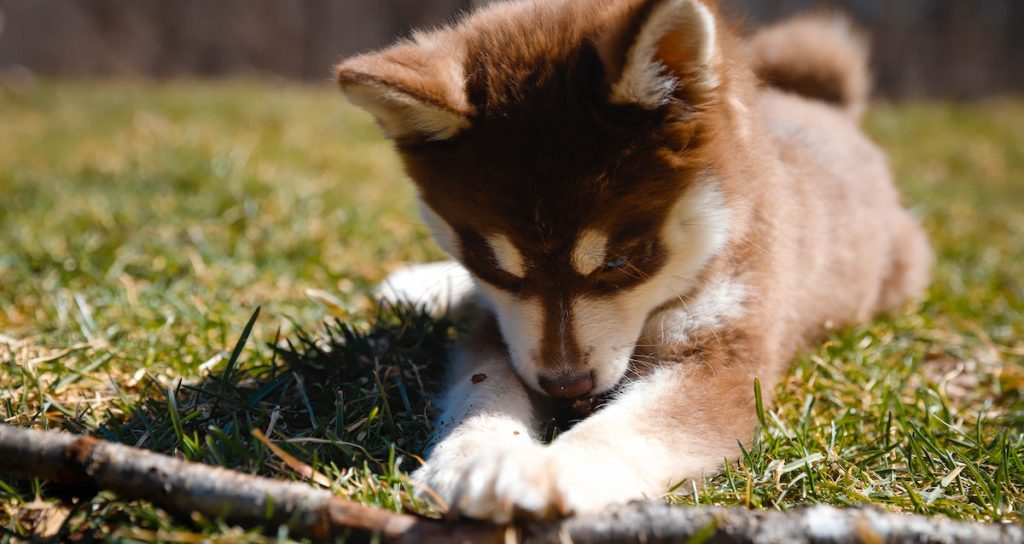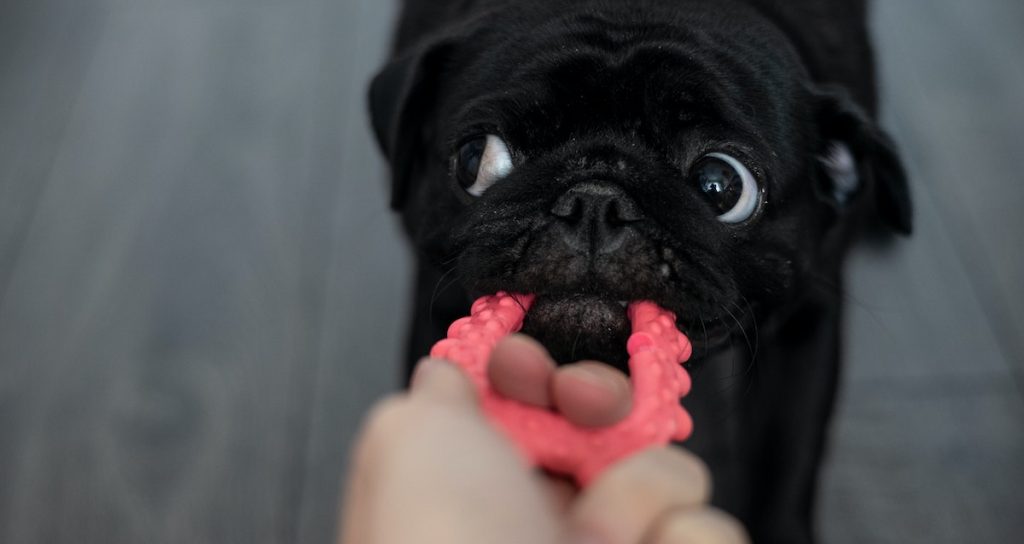Welcoming a new puppy into your home is a thrilling experience, but it’s also a big responsibility that comes with its own set of challenges. Whether you’re a seasoned dog parent or a first-timer, it’s easy to make a few missteps along the way. That’s exactly why we’ve assembled this all-encompassing guide on things puppy owners shouldn’t do.
This guide moves beyond the typical ‘dos’ to deeply explore the ‘don’ts’ — the common mistakes many puppy owners inadvertently commit. From the significance of early socialisation to the risks of granting your pup too much freedom too fast, whether they’re frolicking furballs or newborn puppies, we’ve got your back.
So, settle in with your favourite drink, take a seat, and let’s dig into the things you should never do to a puppy, making sure your furry mate grows up to be happy, healthy, and well-balanced.
Don’t Skip Socialisation

Image via StockSnap on Pixabay
Alright, let’s kick off with a biggie — socialisation. You might think your adorable pup should stay within the comfort of your home, away from the big, scary world. Think again! The early weeks in a puppy’s life are crucial for socialisation. Imagine you’re learning a new language; it’s easier when you’re younger, right? The same goes for your pup.
Introduce them to different people, animals, environments, and even sounds. No need to go overboard; a casual walk around the neighbourhood or a playdate with a neighbour’s dog will do wonders. Missing out on this phase might result in your dog growing up to be anxious or aggressive. So, get out there and start mingling!
Don’t Give Too Much Freedom Too Soon
Now, onto our second point: freedom. We get it, you want your new best friend to explore and have fun. But offering too much freedom too early can be a recipe for disaster. Think of your puppy as a toddler. Would you allow a toddler free rein of the house? Probably not.
Start with a smaller, puppy-proofed area and gradually expand their territory as they learn and grow. This controlled freedom helps them adapt and keeps them safe from hazards like electrical cords or toxic plants. Trust me, your shoes and furniture will also thank you!
Don’t Keep Your Puppy Penned Up for Too Long

Image via Julissa Helmuth on Pexels
While it’s essential to have a safe space for your puppy, it’s equally crucial not to keep them confined for extended periods. Your pup’s got energy to burn! Too much time in a restricted area can lead to a range of problems, from pent-up energy to boredom to even some health issues down the line.
The aim here is balance. Make sure you allot time for exercise, mental challenges, and quality interaction. Toys and treat puzzles are great for engaging their brains, and a good romp in the garden can do wonders for their physical well-being. If you’re out and about for most of the day, think about enlisting the help of a doggy daycare or a reliable pet sitter to keep your fur baby entertained.
Don’t Be Inconsistent, Keep a Schedule
Just like humans, puppies thrive on routine. A stable schedule for meals, potty breaks, and playtime helps your puppy know what to expect, which reduces anxiety and fosters a sense of security. Imagine having your meal times and work hours shift around every day — it would throw you off balance, wouldn’t it? The same goes for your puppy. Consistency not only makes training easier but also helps in establishing good habits early on. A schedule acts like a safety net for your pup, so try not to deviate too much.
Don’t Delay Trainings
Procrastination may be fine for some of your Netflix binges, but not when it comes to training your puppy. The earlier you start with basic commands like sit, stay, and come, the better. Young pups are like sponges, eager to soak up knowledge.
Don’t underestimate the power of positive reinforcement and regular training sessions, even if they’re short. Waiting too long to train your dog could result in a pet that’s hard to manage and behavioural issues could even develop . So, make training a priority from day one.
Don’t Use Harsh Disciplinary Methods

Image via Mellyn Costello on Pexels
We get it, training a pup can be a testing time. They chew on your favourite shoes, have accidents indoors, and the list goes on. But hold your horses before resorting to harsh disciplinary methods like shouting or physical punishment. These tactics can create fear and anxiety, often leading to more behavioural problems down the line. Instead, opt for positive reinforcement techniques. A gentle ‘no’, followed by rewarding the behaviour you want to see, will go a long way in building trust and a positive learning environment.
Don’t Leave Young Children to Interact with Your Puppy Unsupervised
The thought of children and puppies playing together warms the heart, doesn’t it? But let’s not forget that both are unpredictable in their actions. Children might unknowingly pull the puppy’s tail or ears, and the puppy, in return, might nip or scratch. Supervision is essential to ensure the safety and well-being of both parties. Teach kids how to safely pet and play with the puppy, and make sure you’re present during these interactions to guide them.
Don’t Feed Human Food to Your Puppy

Image via Ivan Babydov on Pexels
We’ve all been there: those puppy-dog eyes begging for a bite of your dinner can be hard to resist. But stand your ground! Many foods that are perfectly safe for humans can be toxic to dogs. Foods like chocolate, grapes, and onions are just a few examples. Stick to dog food and treats specifically designed for puppies. Your fur baby’s health is more important than that momentary joy they get from tasting your pizza! It also teaches your pup not to expect a bite out of your food every time you have a meal.
Final Thoughts
And there we have it — a complete guide on the dos and don’ts for puppy parenting. Trust me, it’s easy to get swept up in the joy of having a new furry family member, but remember, you’re setting the stage for your pup’s future behaviour and health. Avoid these common pitfalls, and you’re well on your way to raising a happy, healthy, and well-adjusted doggo!


